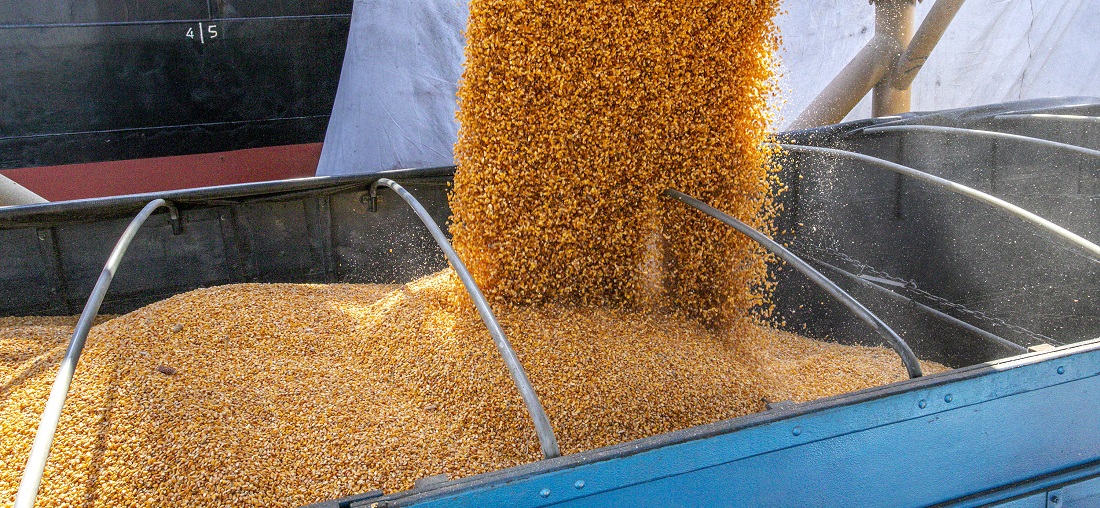
Ukraine conflict spurs Brazilian corn and wheat exports, while supplies decrease
Mar, 08, 2022 Posted by Gabriel MalheirosWeek 202210
According to experts in the field, the increase in worldwide prices of wheat and maize induced by the war between Russia and Ukraine generated favorable market circumstances for exporting these crops from Brazil, presumably leading to constricted local supplies of both of these commodities.
While Brazilian farmers and processors are still hesitant to accept the effects of the war – a 30% increase in wheat demand and a 10% increase in maize demand – exporters and importers have finalized negotiations to secure contracts, boosted by the advantageous exchange rate for foreign transactions.
Brazil is a significant corn exporter, and, now, in the 2021/2022 season, it can surpass Argentina and regain its position as the second-large exporter, according to the US Department of Agriculture (USDA), depending on the yields of the second harvest cycle.
On the other hand, the conflict in Ukraine, the world’s fourth-largest corn exporter, raises fears about shipments from the Eastern European country.
“About 500,000 tonnes of corn were traded for export in Paraná, at higher prices than the domestic market can afford,” said analyst Luiz Pacheco from the T&F consultancy, commenting on deals closed last week.
According to him, the market was already struggling after the first corn crop produced low yields, even before the upsurge in demand caused by war.
“Now, things will only go downhill…,” he said.
An anonymous Paraná broker confirmed such export deals, saying that shipments are scheduled for March and April.
João Pedro Lopes, a StoneX analyst, opined that the local industry is reluctant to accept bearing with the costs of the recent price valuations considering that corn is already being traded at levels close to historic highs in the country.
As a result, Brazil’s domestic quotes have remained relatively unchanged compared to the Chicago Stock Exchange’s increases, which saw maize prices hit their highest level since 2012 and wheat prices reach their greatest level in 14 years.
The prospects are more favorable for Brazilian exports, said the same expert.
“Corn exports are expected to increase with the off-season harvest. In the last harvest, yields were significantly below average … Now, we foresee that Brazil will gain enough momentum to regain its more prominent role among exports,” commented him while adding that the current harvest is satisfactory.
StoneX predicts exports of 40 million tonnes for 2021-22, nearly double what was seen last year, when drought and frost disrupted the harvest.
The same goes for wheat
“Domestic operations are sluggish while traders wait for prices to stabilize, which I doubt will happen given the war, which is expected to drag on for a long time,” Pacheco added.
“In Rio Grande do Sul alone, 1000,000 tonnes of wheat were traded last week, seriously compromising domestic stocks and mill margins.”
Thus, T&F consultancy increased its wheat export forecast from 2.5 million to 2.7 million tonnes in the 2021-2022 period, corresponding from August 2021 to July 2022.
According to government and private sector data, the majority of this volume has already been dispatched, with shipments totaling around 2 million tonnes from December to February, more than double the volume of the entire previous year.
Brazil is a major wheat importer. However, following a record harvest in 2021 and a favorable exchange rate, it recently closed deals to export volumes never seen at the end of the previous year.
“With the dollar high and the domestic market weak, the price of Brazilian wheat was very competitive, resulting in a higher export demand,” said StoneX’s Lopes.
Pacheco assesses that wheat will only be available for negotiation in the country until mid-April. Brazil will have to rely on imports for the rest of the year until the new crop arrives, around September.
According to Rubens Barbosa, president of the Brazilian Wheat Industry Association (Abitrigo), the Brazilian industry is cautious with its stockpiles. Therefore, it should only resume purchases at the end of the month. Also, he said that each mill has its policy for passing on costs to consumers.
Source: Money Times
To read the full original article, please see:
-
Ports and Terminals
Jan, 10, 2025
0
Cofco Expands Export Capacity in Brazil with Terminal in Santos
-
Wilson Sons Videos
Feb, 12, 2021
0
Brazilian seaports – Efficiency and productivity – #Episode 3 | Port of Santos – Brazil
-
Other Cargo
Jun, 20, 2023
0
Fertilizer consumption set to increase in Brazil in 2023
-
Economy
Jan, 28, 2025
0
Donald Trump sparks race for trade deals to counter US tariffs

